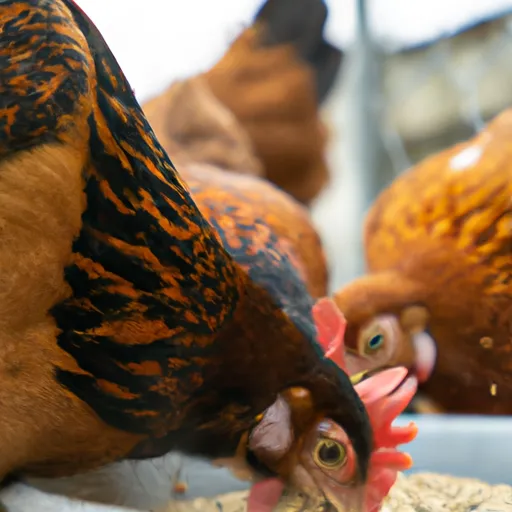Feeding Your Chickens for Optimal Egg Yields
Introduction to Chicken Feeding
Raising chickens can be a rewarding experience in terms of the eggs they produce and the companionship they offer.
However, feeding your chickens correctly is essential if you want them to lay healthy, nutritious eggs consistently.
We’ll explore what you need to know about feeding your chickens for optimal egg yields.
Nutritional Requirements for Laying Hens
Chickens have specific nutritional requirements that change as they grow and develop.
When it comes to laying hens, their diet needs to provide them with enough energy, protein, vitamins, and minerals to support egg production.
Here are some of the critical nutrients that laying hens require:
Energy: Laying hens need a lot of power to produce eggs. This energy comes from carbohydrates, fats, and proteins in their diet.
Protein: Eggs are made up of mostly protein, so laying hens need a high-protein diet to produce large, healthy eggs.
Vitamins and Minerals: Laying hens need vitamins and minerals such as calcium, phosphorus, folate, and vitamin D to maintain strong bones, shell quality, and overall health.
Common Feed Ingredients and Their Benefits
There are many different types of feed ingredients available for chickens, each with its own unique benefits.
Here are some common feed ingredients used for laying hens:
Corn: Corn is a popular source of energy for chickens. It’s easy to digest and provides a consistent source of energy.
Soybeans: Soybeans are another great source of energy and protein for chickens. They also contain plant estrogens that can help stimulate egg production.
Oats: Oats are a good source of fiber and energy for chickens. They can also help regulate blood sugar levels.
See also Silkies 101: Everything You Need to Know About This Unique and Beloved Breed

Alfalfa: Alfalfa is a legume that’s rich in protein, vitamins, and minerals. It’s often added to chicken feed to boost nutrition.
Tips for Providing a Balanced Diet
To ensure your chickens are getting all the nutrients they need to produce healthy eggs,.
Here are some tips for providing a balanced diet:
Offer a variety of feed ingredients: Mixing up the types of feed ingredients you give your chickens can help ensure they get a well-balanced diet.
Consider supplements: If your chickens aren’t getting enough nutrients from their feed alone, consider adding supplements like oyster shells or fish meals to their diet.
Monitor intake: Keep an eye on how much feed your chickens are eating and adjust amounts accordingly. You don’t want them to overeat or underfeed.
By understanding the nutritional requirements of laying hens and offering them a balanced diet, you can optimize their egg production and enjoy fresh, delicious eggs every day.
Remember to keep an eye on your chickens’ behavior and adjust their diet as needed to ensure they stay happy and healthy.
